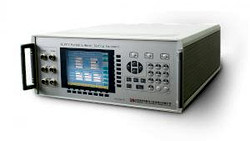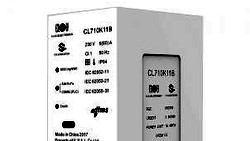As the demand for energy resources continues to increase, the need for efficient, secure, and reliable systems of energy management also increases. Smart grid technology is helping to revolutionize how energy is generated, stored, and used, and blockchain is now emerging as a key tool for securing these smart grid energy transactions.
Blockchain technology has the potential to transform the way energy is tracked, exchanged, and monitored in electric power markets, making energy management and delivery safer, faster, and more efficient than ever before.
Understanding Blockchain Technology
Blockchain technology is a digital ledger system that enables secure and transparent transactions without the need for intermediaries. In simpler terms, it is a decentralized, distributed database that allows multiple parties to access, update, and track transactions securely.
Each block in the blockchain contains a set of data, which is verified by a network of computers. Once verified, the block is added to the existing chain of blocks, creating a permanent and tamper-proof record of the transaction.
Blockchain technology is most commonly associated with cryptocurrency transactions, but its applications are far-reaching. Its potential for disrupting industries and revolutionizing business models is vast.
One area that could benefit from the implementation of blockchain technology is the electric power market. The complexity of energy transactions in this market makes it an ideal candidate for a more secure and efficient system.

The Electric Power Market and its Challenges
The electric power market is facing a number of challenges that have made it difficult for traditional market players to stay competitive and keep up with the changing times. Some of the major challenges faced by the industry include high energy prices, increased demand for clean energy sources, the need for increased security and privacy of energy transactions, and the inability of the existing infrastructure to support the influx of distributed energy resources.
In addition, the existing centralized market structure has made it difficult for new players to enter the market and compete with existing utilities. The lack of transparency and the centralized nature of the market have made it difficult for small-scale producers of energy to find a way to monetize their assets and participate in the market. This has created a situation where only the largest players in the market are able to benefit from the high prices and profits.
Furthermore, the traditional energy market lacks transparency, which can lead to errors and inefficiencies in the system. Without an effective system for tracking energy transactions, it can be difficult to monitor the energy usage and production of each participant in the market, which can lead to imbalances and high costs.
These challenges highlight the need for a new system that can help streamline energy transactions and provide transparency to all market participants. Blockchain technology provides an ideal solution for this issue by providing a decentralized, transparent, and secure platform for energy transactions.
How Blockchain Technology can Help
The electric power market faces several challenges, such as balancing supply and demand, dealing with grid congestion, ensuring data security, and reducing costs. Blockchain technology can address these challenges in the following ways:
- Decentralization
The traditional electric power market is highly centralized, with power generators and distributors controlling the system. Blockchain technology allows for the creation of decentralized power markets, where multiple energy producers and consumers can trade power directly without the need for intermediaries. - Increased renewable energy integration
With blockchain technology, it is possible to track the production and consumption of renewable energy in real-time. This can make it easier to integrate renewable energy sources into the grid, as it enables utilities to manage the supply and demand of energy more effectively. - Transparency
The electric power market lacks transparency, with customers not having access to real-time data on power generation and distribution. Blockchain technology can create a transparent energy market where customers have access to accurate information on power usage, costs, and carbon emissions. - Security
The electric power market is susceptible to cyberattacks and data breaches. Blockchain technology provides a secure platform where energy transactions are encrypted, and all parties have a shared ledger, making it virtually impossible for hackers to alter data. - Smart Contracts
The electric power market relies on complex contracts between power generators, distributors, and customers. Blockchain technology can simplify the contract process by creating self-executing smart contracts, which automatically trigger energy transactions based on predetermined conditions. - Cost Reduction
The traditional electric power market involves several intermediaries, including brokers, traders, and regulators, leading to high transaction costs. Blockchain technology can eliminate the need for intermediaries, reducing costs, and increasing efficiency.
Current Status of Blockchain in the Electric Power Market
Many utilities, startups, and research organizations are experimenting with blockchain to solve specific problems in the electric power industry. For example, decentralized autonomous organizations (DAOs) have been created to manage peer-to-peer trading of renewable energy among prosumers in Australia.
Several pilot projects have already been implemented, such as LO3 Energy's Brooklyn Microgrid project in New York City, and UK-based Electron is trialling local energy trading platforms based on blockchains. These initial efforts aim to demonstrate feasibility and provide proof-of-concept results.
While experimentation provides valuable insights, it raises questions about how different blockchain solutions can communicate and exchange data effectively without resorting to expensive, custom integration work or single points of failure. Latest proposals for interoperability are meta-protocols for managing diverse token systems, hoping to foster collaboration across developers working on separate chains.
Governments may regulate various aspects of the blockchain ecosystem, such as cryptocurrency transactions, smart contract functionality, and data privacy compliance. Industry groups such as the World Wide Web Consortium (W3C), International Organization for Standardization (ISO), and International Electrotechnical Commission (IEC) are developing standardizations to bring order to blockchain development.
Takeaway
Many factors contribute to shaping the landscape of blockchain's role in electric power markets worldwide. The space remains highly dynamic and subject to change as stakeholders pursue innovative approaches, collaborate to address common challenges, and adapt to evolving circumstances.
As CLOU Global product director with a keen interest in the advancement of blockchain technologies within the energy industry, I am continually monitoring the progression of these developments over time. While significant headway has yet to be made in practical implementations of these technologies on a grand scale, discussions about their application continue to arise during events such as Enlit Africa 2023.
In the face of this current reality, I remain optimistic that CLOU will play an active role in driving the evolution of blockchain technologies within this critical domain in the future.
Editor's note: This article was originally published in June 2023 and has been updated for comprehensiveness.





All comments are moderated before being published. Inappropriate or off-topic comments may not be approved.